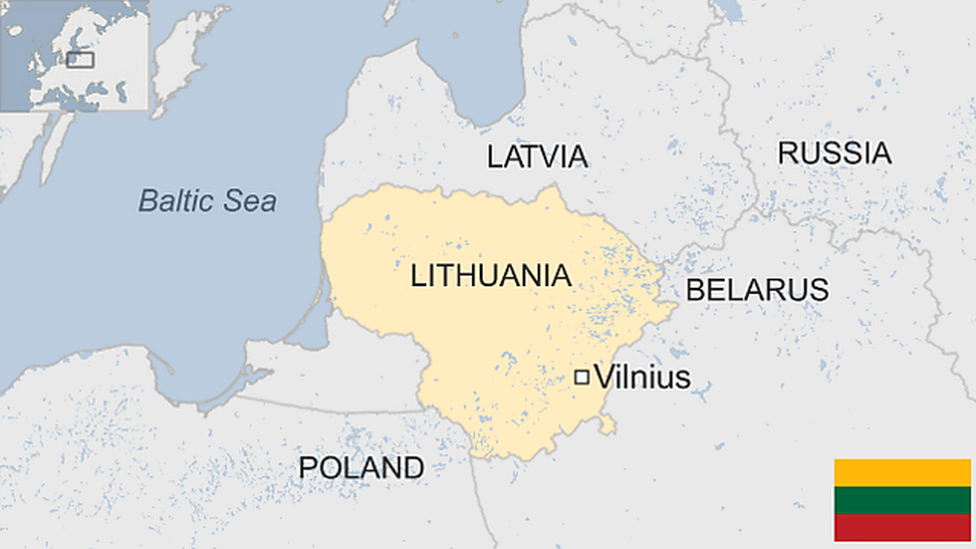Lithuania convicts Russians of war crimes under Soviet rule
- Published
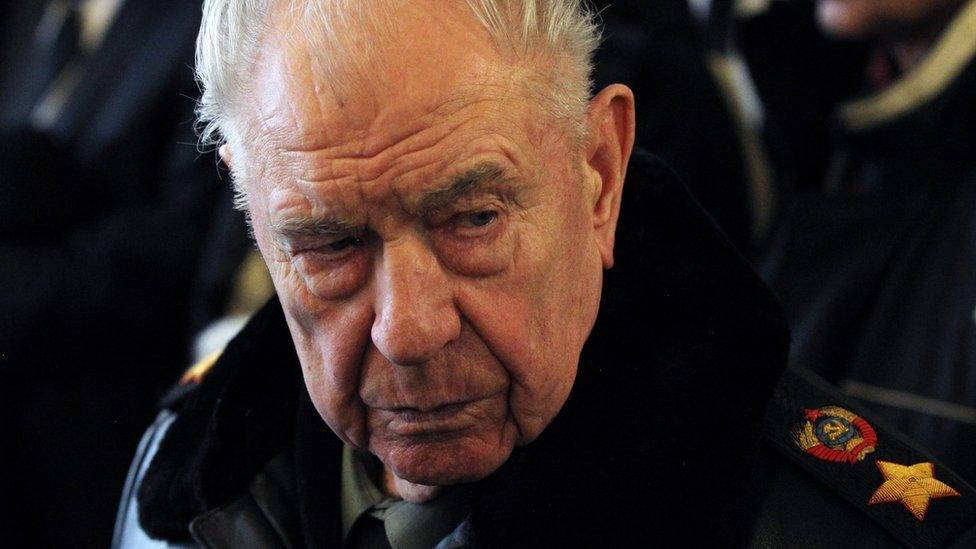
Dmitry Yazov, a Russian national, was sentenced in absentia
A court in Lithuania has found a former Soviet defence minister guilty of war crimes over a deadly crackdown aimed at stopping the Baltic state breaking away from the USSR in 1991.
Marshal Dmitry Yazov, 94, was sentenced in absentia to 10 years in prison.
Another 66 former Soviet military and KGB officials were given sentences of between four and 14 years. Only two of them were present in the courtroom.
Russia says the trial in Lithuania is politically motivated and illegal.
The assault by security forces on a TV tower in the Lithuanian capital Vilnius on 13 January 1991 left 14 civilians dead and hundreds injured.
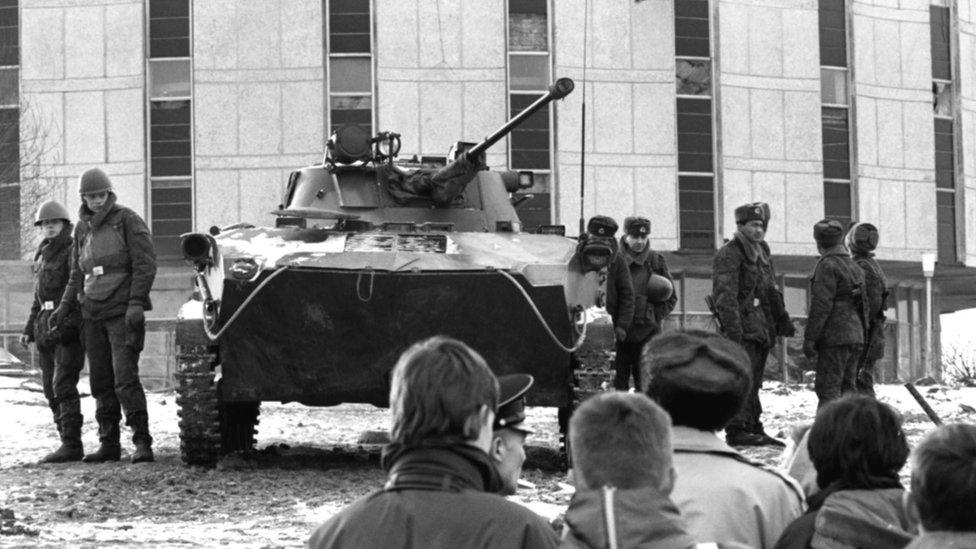
The victims were either shot dead by Soviet soldiers or run down by armoured vehicles
The Baltic republic, which is now an EU state, had declared independence from the Soviet Union in March 1990.
Mikhail Gorbachev, who was the Soviet president in 1991, has refused to testify.
The Soviet Union was formally dissolved in December 1991.
What did the Lithuanian court rule?
It sentenced Yazov, a Russian national, to 10 years in jail for war crimes and crimes against humanity.
Another high-profile defendant, former KGB officer Mikhail Golovatov, was sentenced in absentia to 12 years in prison. He is also a Russian citizen.
Moscow has refused to extradite the two men.
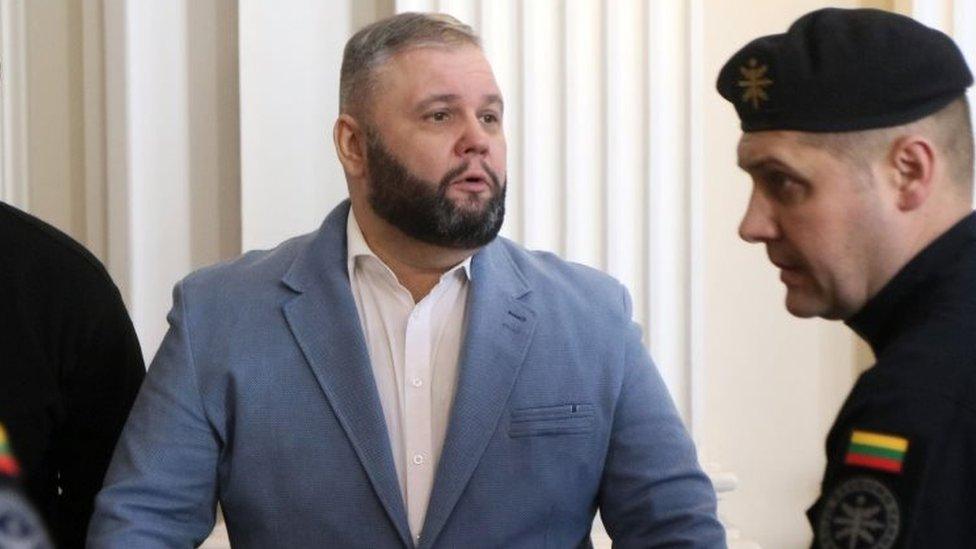
Yuriy Mel (centre) was sentenced to seven years in prison
The only two defendants present in the courtroom were Yuriy Mel, a former Soviet tank officer, and Gennady Ivanov, a former Soviet munitions officer.
The two Russian nationals were sentenced to seven and four years in prison respectively.
Most of the 67 convicted on Wednesday are believed to be residing in Russia and Belarus.
What about the reaction to the court verdict?
"For me, the most important thing today is that those who organised and implemented crimes against civilians have been handed sentences by a court," Robertas Povilaitis, whose father was killed during the assault, told Reuters.
Lithuanian President Dalia Grybauskaite also praised the court ruling.
"The guilty have been named for killings of people who peacefully protected freedom," she said in a statement.
- Published19 July 2011
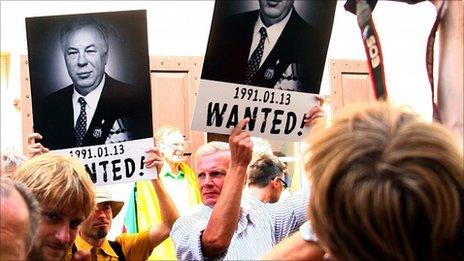
- Published11 May 2011
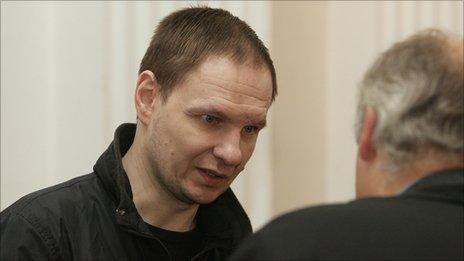
- Published25 November 2024
